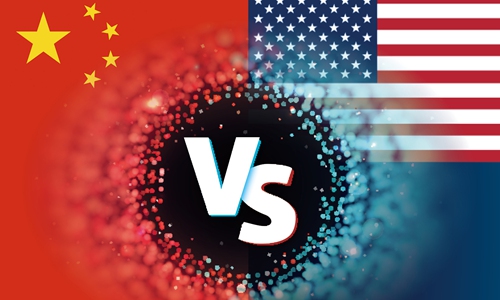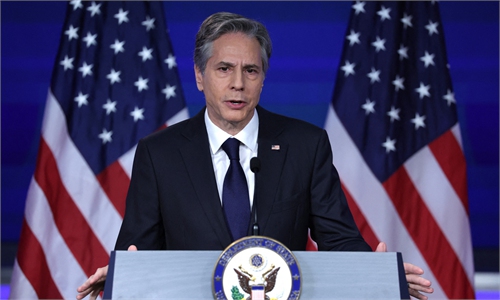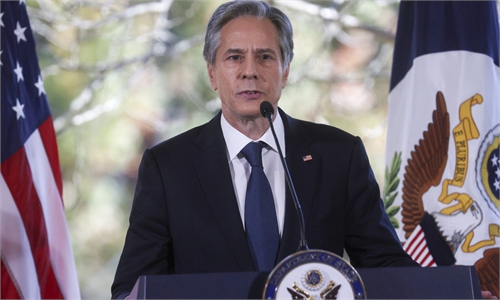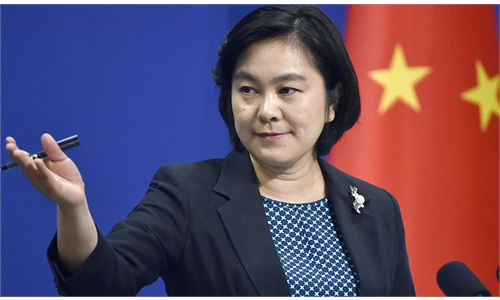America's attempt to impose old ‘Cold War playbook’ on China is doomed to fail

China US Photo:Global Times
In analyzing the causes of the collapse of the Soviet Union, American scholar Joseph Nye once cited a set of figures about personal computers: When Gorbachev came to power in 1985, the Soviet Union had 50,000 personal computers, while the US had 30 million. Four years later, the Soviet Union had about 400,000 PCs, while the US had 40 million.Nye cited no other economic or military data, presumably because he thought that personal computer data would better explain why the US "won" the Cold War competition.
The number of personal computers is a reflection of economic competitive advantage. Typically, economies with high productivity and high technology tend to have more PCs. It is also a yardstick for measuring how open and innovative an economy is. Therefore he reasoned that the number of personal computers reflects the role of ideology.
Former US President Richard Nixon argued that ideology was at the heart of the US-Soviet rivalry during the Cold War. The end of the Cold War reinforced the American belief that their ideology was unchallengeable. It is the US that is the leader of world development.
Now, the US defines China as its competitor. In a recent speech involving US policy toward China, Secretary of State Anthony Blinken called for fierce competition with China to preserve the current international order. And what the US calls the international order is actually a concrete expression of American ideology.
As with the competition with the Soviet Union, the US also portrays China as a challenger to its ideology.
If Nye were to use another set of data to compare China, he probably would not choose personal computers. This is not because China has more PCs than the US, but because China's path of rise has not retraced the path of the Western powers, displaying an ideology different from their own.
By contrast, the rhetoric of American leaders about the international order pales in comparison. The world can clearly see that China has developed over the years through its own efforts to open up and improve its innovation capabilities, without retracing the path of Western expansion.
The problem lies precisely in the fact that such a path of peaceful development breaks the dependence of developing countries on the Western path. Ultimately, the ideological competition lies in who can increase their economic power through peaceful means and whose approach to development is more conducive to the economic uplift of a country and nation.
In a 2016 article on the Belt and Road Initiative, American political scientist Francis Fukuyama said, "a historic contest is underway over competing development models - that is, strategies to promote economic growth - between China, on the one hand, and the US and other Western countries on the other. Although this contest has been largely hidden from public view, the outcome will determine the fate of much of Eurasia for decades to come."
This may be why Blinken, realizing that China's peaceful development has the potential to fundamentally shake the confidence of developing countries in the path guided by the US, could not find a better reason to convince the world to come up with the Cold War concept again than to virtually present China as a similar adversary. Except that today's China is not the Soviet Union of the Cold War. China is deeply integrated into the global integration process and has rejuvenated itself through reforms and opening up.
Today there is still a big gap between China's PC ownership and that of the US, with some figures showing a difference of at least 10 times. However, the pace of development in China is accelerating.
How many of the personal computers owned by Americans are made in China? And how many of the personal computers owned by Chinese are equipped with US-made hardware and software? These numbers are hard to determine.
The US-China relationship has become increasingly competitive, but it has also become increasingly clear that neither side can develop itself without benefiting from the other's development.
US leaders may not really see relations with China as a return to the Cold War, but Washington's recourse to the tired tactics of ideological competition with the Soviet Union does leave a sense of helplessness.
Could it be that the two sides are really caught in a zero-sum game as they move along the paths defined by their different ideologies?
The author is a senior editor with People's Daily, and currently a senior fellow with the Chongyang Institute for Financial Studies at Renmin University of China. dinggang@globaltimes.com.cn. Follow him on Twitter @dinggangchina




